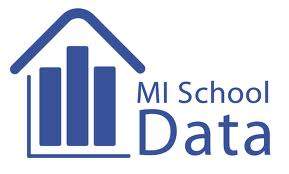SAGINAW TOWNSHIP COMMUNITY SCHOOLS
Wellness Policy
The Saginaw Township Community School District is committed to creating a healthy school environment that enhances the development of lifelong wellness practices. District efforts in curriculum, nutrition, and school-based activities shall support healthy practices among students and staff.
Curriculum
All students, Pre-K-12, shall receive nutrition education that is aligned with the Michigan Health Education Content Standards and Benchmarks. Nutrition education that teaches the knowledge, skills, and values needed to adopt healthy eating behaviors shall be integrated into the curriculum. Nutrition education information shall be offered throughout the school campus including, but not limited to, school dining areas and classrooms. Staff members who provide nutrition education shall have the appropriate training.
Physical Education
The District shall offer physical education opportunities that include the components of a quality physical education program. Physical education shall equip students with the knowledge, skills, and values necessary for lifelong physical activity. Physical education instruction shall be aligned with the Michigan Physical Education Content Standards and Benchmarks.
Every year, all students, Pre-K-12, shall have the opportunity to participate regularly in supervised physical activities, either organized or unstructured, intended to maintain physical fitness and to understand the short- and long-term benefits of a physically active and healthy lifestyle.
Nutrition
The District shall ensure that reimbursable school meals meet the program requirements and nutrition standards found in federal regulations. The District shall encourage students to make nutritious food choices.
The District shall monitor all food and beverages sold or served to students, including those available outside the federally regulated child nutrition programs, to ensure compliance with USDA standards for Smart Snacks.
The District superintendent shall annually evaluate vending policies and contracts. Vending contracts that do not meet the intent and purpose of this policy shall be modified accordingly or not renewed.
Administrative Regulations
The District superintendent shall develop and implement administrative rules consistent with this policy. The superintendent will report to the local school board, as requested, on the District’s programs and efforts to meet the purpose and intent of this policy.
To assist in the creation of a healthy school environment, the District shall establish a Coordinated School Health Team. It shall also act as the referent committee for other related areas such as the Safe and Drug Free grant.
The superintendent shall appoint a member of the administrative staff of the District to organize the Coordinated School Health Team and invite appropriate District stakeholders to become members.
Staff shall be reminded that healthy students come in all shapes and sizes. Students should receive consistent messages and support for:
- Self respect.
- Respect for others.
- Healthy eating.
- Physical activity.
These local rules are subject to ongoing review and modification. Any District stakeholder wishing to express a viewpoint regarding these local rules should contact:
Superintendent of Schools
Saginaw Township Community Schools
3465 N. Center Road
Saginaw, Michigan 48603
(989) 797-1800
(989) 797-1801
Students, staff, and community will be informed about the Local Wellness Policy in the required Annual Notifications.
Nutrition Education
Nutrition education, a component of comprehensive health education, shall be offered every year to students of the District. The District may offer age appropriate nutrition education classes. In addition, nutrition education topics shall be integrated into the entire curriculum when appropriate.
The District shall implement a quality nutrition education program that addresses the following:
- Equips students to acquire the knowledge and skills needed to engage in sound nutrition behavior.
- Builds students’ confidence and competence in making healthy nutrition choices.
- Includes students of all abilities.
- Is taught by “highly qualified teachers of health education.”
Nutrition education should also be made available to parents/guardians and the community. This nutrition education may be provided in the form of handouts, wall or bulletin board posters or banners, postings on the District website, community and student oriented presentations or other communications focused on promoting proper nutrition and healthy lifestyles.
Nutrition Standards
The District shall offer school meal programs with menus meeting the meal patterns and nutrition standards established by the United States Department of Agriculture (USDA). The District shall encourage students to make food choices based on the most current Dietary Guidelines for Americans. Food and beverages that compete with the District’s policy of promoting a healthy school environment shall be discouraged.
Each school building in the District shall promote the following food and beverages in all venues outside federally regulated child nutrition programs:
- Whole and enriched grain products that are high in fiber, low in added fats and sugars, and served in appropriate portion sizes consistent with the current USDA standards.
- Fresh, frozen, canned or dried fruits and vegetables using healthy food preparation techniques, and 100 percent fruit or vegetable juice in 12-ounce servings or less.
- Nonfat, low-fat, plain and/or flavored milk and yogurt, nonfat and/or low-fat real cheese, rather than imitation cheese. Offer the following serving sizes: yogurt in eight-ounce servings or less, milk in 16-ounce servings or less, cheese in 1.5-ounce (two-ounce, if processed cheese) servings or less.
- Nuts, nut butters, seeds, trail mix, and/or soybean snacks in one-ounce portions or less; portions of three ounces or less of cooked lean meat, poultry, or fish using healthy food preparation techniques.
- Accompaniments (sauces, dressings, and dips), if offered, in one-ounce servings or less.
The District shall monitor food service distributors and snack vendors to ensure that they provide healthy food and beverage choices that comply with this policy’s purpose in all venues.
The District shall encourage serving healthy food at school parties. Notices shall be sent to parents / guardians either separately or as part of a school newsletter, reminding them of the appropriateness of providing healthy treats for students and/or encouraging the use of non-food treats for classroom birthday or award celebrations.
The District shall encourage healthy fundraisers as alternatives to fundraising that involve selling food items of limited nutritional value, such as candy, cupcakes, or sugary beverages. Example: Sales of candy items (candy bars, sugar coated chocolate snacks, or the like) as a school or grade-level fundraising project may be replaced with non-food items such as candles, wrapping paper, greeting cards, etc.
Physical Education and Physical Activity Opportunities
Developmentally appropriate physical education shall be offered every year to all students of the District. In addition, physical education topics shall be integrated into the entire curriculum when appropriate.
The District shall implement a quality physical education program that addresses the following:
- Equips students with the knowledge, skills, and attitudes necessary for lifelong physical activity.
- Has a curriculum aligned with the Michigan Physical Education Content Standards and Benchmarks.
- Influences personal and social skill development.
- Builds students’ confidence and competence in physical abilities.
- Engages students in making choices that prepare them for a wide variety of lifetime activities.
- Includes students of all abilities.
- Is taught by a certified physical education teacher trained in best practice physical education methods.
- Keeps students involved in purposeful activity for a majority of the class period.
The District should offer daily opportunities for unstructured physical activity, commonly referred to as recess, for all students Pre-K through grade five. Recess should be in addition to physical education class time and not be a substitute for physical education. Each school shall provide proper equipment and a safe area designated for supervised recess in the elementary setting. School staff should not withhold participation in recess from students or cancel recess to make up for missed instructional time. Schools should provide opportunities for some type of physical activity for students in grades seven through twelve apart from physical education class and organized sports. Physical activity opportunities might include: before- and after-school extracurricular physical activity programs, Safe Routes to School Programs, and use of school facilities outside of school hours.
Other School-Based Activities Designed to Promote Student Wellness
The District shall strive to create a healthy school environment that promotes healthy eating and physical activity. In order to create this environment, the following shall be considered:
Dining Environment
- A clean, safe, enjoyable meal environment provided for students and staff.
- Drinking fountains available in all schools, so that students can get water at meals and throughout the day. If there are no drinking fountains in the lunch room, potable water will be provided.
- Identity protection of students who eat free- and reduced-price meals.
Time to Eat
- Adequate time for students to enjoy eating healthy foods with friends in schools.
- Lunch time is scheduled as near to the middle of the school day as possible.
Food or Physical Activity as a Reward or Punishment
- Encourage using physical activity as a reward, such as teacher or principal walking or playing with students at recess.
Consistent School Activities and Environment
- Encourage school fundraising efforts to support healthy eating and physical activity.
- Make efforts to keep District facilities open for use by students outside school hours.
- Encourage parents/guardians, teachers, school administrators, students, foodservice professionals and community members to serve as role models in practicing healthy eating and being physically active, both in school and at home.
- Provide information and outreach materials about other Food and Nutrition Service programs, (i.e., such as Food Stamps, and Women, Infants, and Children (WIC)) to students and parents/guardians.
- Encourage all students to participate in school meal programs, (i.e., the National School Lunch, including snacks for After School Program, and School Breakfast programs).
Adopted by Board of Education on June 26, 2006
Reviewed March 2012, Reviewed September 2014
Back to Top



